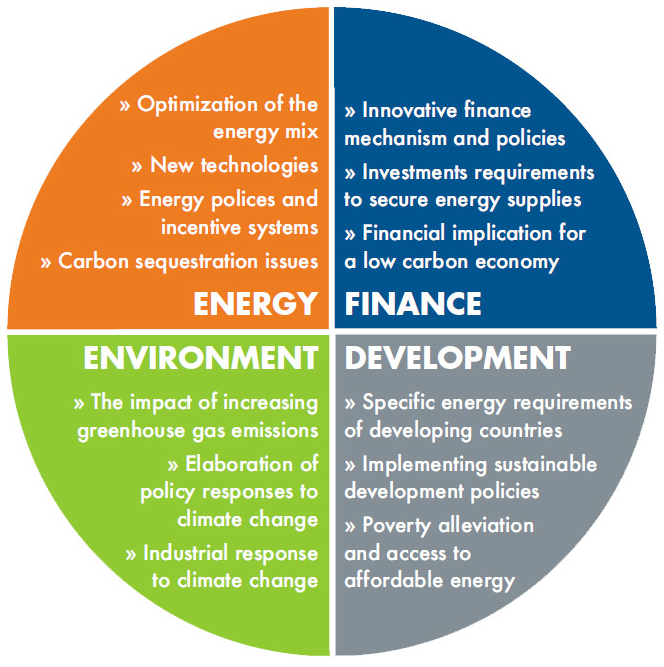Cheaper oil prices reduce incentives for investment in alternative energy sources. Such an approach is short-sighted, however, given our current understanding of predicted energy needs:
- Today, fossil fuels account for approximately 80% of energy consumption.
- The steep rate of decline in output from conventional oil fields means that “peak oil” might be reached sooner than anticipated.
It is widely believed that a price of at least $75 per barrel is needed to sustain investments in both conventional production as well as research into alternatives.
Implementation of a new energy mix, including energy conservation measures and the development of alternative energy sources, would support our current quality of life and reduce inequalities across the globe.
Implementation of a new energy mix, including energy conservation measures and the development of alternative energy sources, would support our current quality of life and reduce inequalities across the globe.

